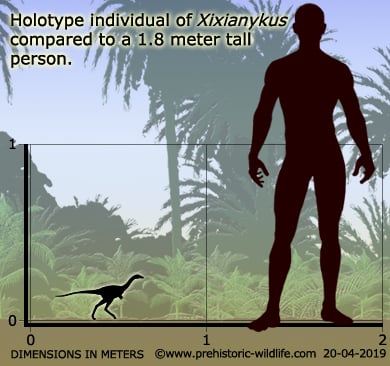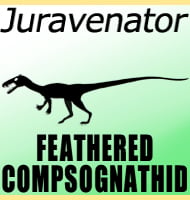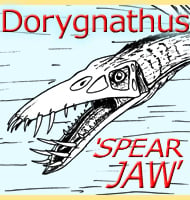In Depth
At the time of its description the genus Xixianykus represents the oldest known parvicursorine alvarezsaur discovered (others are dated to the Campanian/Maastrichtian eras). The legs of Xixianykus are of particular interest since they are about twenty centimetres long, which in relation to a total body length estimated at fifty centimetres long, means that Xixianykus had one of the longest leg to body length ratios of not just alvarezsaurs, but dinosaurs in general. This meant that despite the small size, Xixianykus would have been exceptionally fast runners, perhaps even being able to outpace potential predators such as dromaeosaurids.
A possible predatory threat and genus that Xixianykus should not be confused due to name similarity is the troodontid genus Xixiasaurus.
Further Reading
- A basal parvicursorine (Theropoda: Alvarezsauridae) from the Upper Cretaceous of China - X. Xu, D.-Y. Wang, C. Sullivan, D. W. E. Hone, F.-L. Han, R.-H. Yan & F.-M. Du - 2010.










